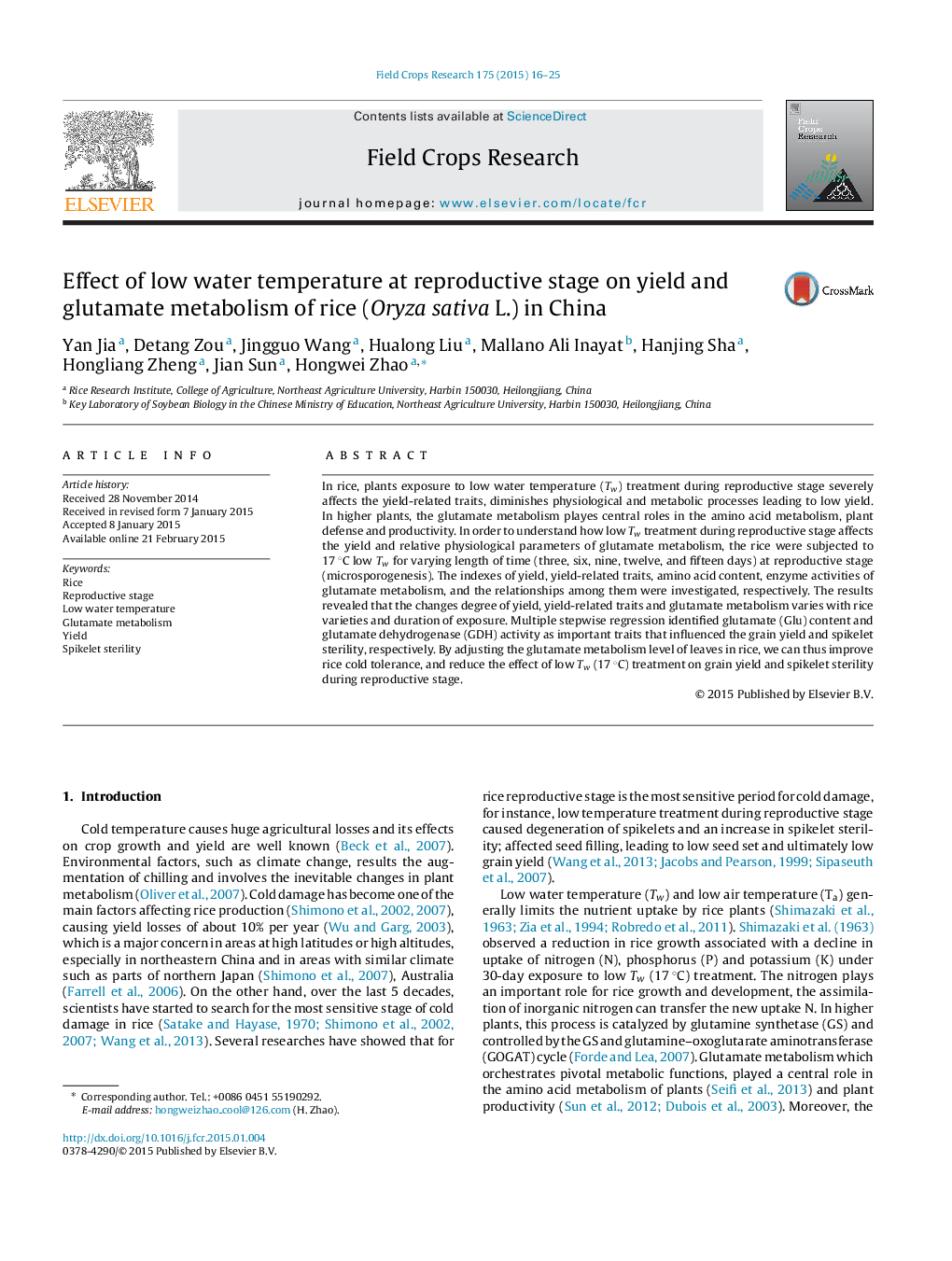| کد مقاله | کد نشریه | سال انتشار | مقاله انگلیسی | نسخه تمام متن |
|---|---|---|---|---|
| 6374965 | 1624688 | 2015 | 10 صفحه PDF | دانلود رایگان |

- Rice were subjected to 17 °C low Tw for 3, 6, 9, 12, 15 days at reproductive stage, respectively.
- Yield, yield-related traits and relative physiological parameters of glutamate metabolism were investigated, respectively.
- The changes degree of yield, yield-related traits and glutamate metabolism varies with rice varieties and duration of exposure.
- Glutamate content and glutamate dehydrogenase activity as important traits that influenced the grain yield and spikelet sterility, respectively.
- By adjusting the glutamate metabolism level of leaves, we can improve rice cold tolerance.
In rice, plants exposure to low water temperature (Tw) treatment during reproductive stage severely affects the yield-related traits, diminishes physiological and metabolic processes leading to low yield. In higher plants, the glutamate metabolism playes central roles in the amino acid metabolism, plant defense and productivity. In order to understand how low Tw treatment during reproductive stage affects the yield and relative physiological parameters of glutamate metabolism, the rice were subjected to 17 °C low Tw for varying length of time (three, six, nine, twelve, and fifteen days) at reproductive stage (microsporogenesis). The indexes of yield, yield-related traits, amino acid content, enzyme activities of glutamate metabolism, and the relationships among them were investigated, respectively. The results revealed that the changes degree of yield, yield-related traits and glutamate metabolism varies with rice varieties and duration of exposure. Multiple stepwise regression identified glutamate (Glu) content and glutamate dehydrogenase (GDH) activity as important traits that influenced the grain yield and spikelet sterility, respectively. By adjusting the glutamate metabolism level of leaves in rice, we can thus improve rice cold tolerance, and reduce the effect of low Tw (17 °C) treatment on grain yield and spikelet sterility during reproductive stage.
Journal: Field Crops Research - Volume 175, April 2015, Pages 16-25